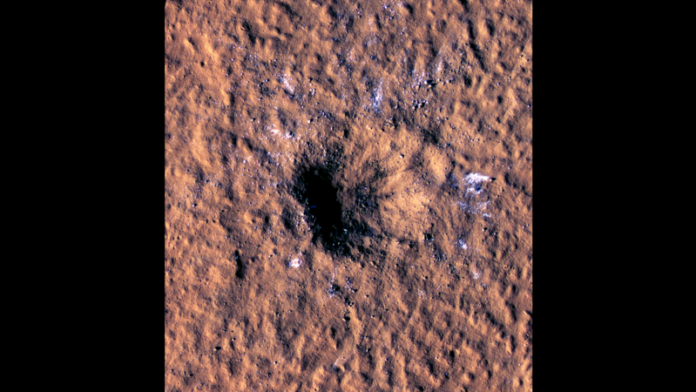
Enlarge / One of the craters identified seismically, then confirmed through orbital images. (credit: NASA/JPL-Caltech/University of Arizona)
Mars trembles with marsquakes, but not all of them are driven by phenomena that occur beneath the surface—many are the aftermath of meteorite strikes.
Meteorites crash down to Mars every day. After analyzing data from NASA’s InSight lander, an international team of researchers noticed that its seismometer, SEIS, detected six nearby seismic events. These were linked to the same acoustic atmospheric signal that meteorites generate when whizzing through the atmosphere of Mars. Further investigation identified all six as part of an entirely new class of quakes known as VF (very high frequency) events.
The collisions that generate VF marsquakes occur in fractions of a second, much less time than the few seconds it takes tectonic processes to cause quakes similar in size. This is some of the key seismological data that has helped us understand the occurrence of earthquakes caused by meteoric impacts on Mars. This is also the first time seismic data was used to determine how frequently impact craters are formed.
Read 12 remaining paragraphs | Comments
Ars Technica - All contentContinue reading/original-link]




